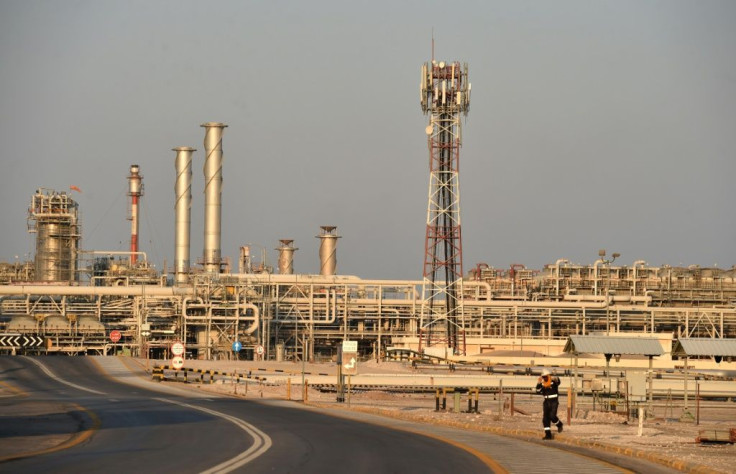Saudi Arabia Vulnerable To Iranian Reprisals After Killing Of Soleimani

KEY POINTS
- Saudi Arabia is allied with the U.S. and an enemy of Iran
- The Saudis suffered an attack on its oilfields, presumably by Iran, last September
- Crude oil futures touched $70 during the weekend
Rising tensions between the U.S. and Iran following the targeted assassination of Quds chief Qassem Soleimani could place Saudi Arabia’s oil infrastructure in jeopardy.
The U.S. State Department warned of “heightened risk” of missile attacks on Saudi military bases and energy facilities.
The Saudis, a staunch ally of Washington and an enemy of Iran, already suffered an attack on its oilfields in September – an assault blamed on Teheran.
“[Iran is] not going to confront the U.S. directly but they will perhaps attack Saudi tankers again, maybe Saudi oil refineries again," said John Tirman, the executive director of the Massachusetts Institute of Technology Center for International Studies. "The fact is that Iran will come back and hit U.S. assets or the assets of U.S. allies in the region, and they will do so repeatedly over a period of time.”
The September 2019 attack on a facility owned by Saudi Arabia’s Aramco temporarily suspended 5.7 million barrels of daily oil production, or more than 5% of global daily crude production. As a result, the price of Brent crude surged by nearly 15% in a single day. However, in less than two weeks the price declined to pre-attack levels.
Ilan Goldenberg, the Middle East security director at the Center for a New American Security, said: “Don’t be surprised if the Iranians launch a bunch of missiles at Saudi [Arabia] and [United Arab Emirates and] especially at U.S. bases but also oil facilities. They surprised us in September with their accuracy, but they purposely tried to keep the damage to a minimum. This time they may not do that.”
Similarly, Jason Bordoff, a former White House energy adviser to President Barack Obama, warned Iran's response “will be severe and deadly and certainly may include escalating attacks on energy infrastructure.” He added the September attack on the Saudis “was just the beginning."
Indeed, a leader of the Iranian-backed Popular Mobilization Forces, or PMF, militia group in Iraq has already threatened to carry out attacks on the embassies of Saudi Arabia, the United Arab Emirates and Bahrain – as they did with the U.S. Embassy in Baghdad last week.
"When the Popular Mobilization Forces are capable of besieging the embassy of evil [U.S.] in Baghdad on this day, then they will soon besiege all the U.S. military bases in Iraq – they will even besiege the embassies of countries like Saudi Arabia, the UAE, Bahrain, and others," tweeted Abo Alaa al-Walae, secretary-general of the Iraqi Kataib Sayyid al-Shuhada, a branch of PMF.
Saudi Arabia itself complained that Washington failed to notify Riyadh beforehand about the U.S. drone strike that killed Soleimani.
"The kingdom of Saudi Arabia was not consulted regarding the U.S. strike," a Saudi official told Agence France-Presse. "In light of the rapid developments, the kingdom stresses the importance of exercising restraint to guard against all acts that may lead to escalation, with severe consequences.”
Saudi Crown Prince Mohammed bin Salman spoke to Iraq's Prime Minister Adel Abdel Mahdi during the weekend, emphasizing "the need to make efforts to calm the situation and de-escalate tensions.”
The crown prince has ordered his younger brother and deputy defense minister Prince Khalid bin Salman, to travel to London and Washington this week to urge western defense officials to exercise restraint in their dealings with Iran.
Meanwhile, Brent crude oil futures touched $70 per barrel during the weekend.
“Oil will remain on tenterhooks, ready to jump higher with every headline indicating a turn for the worse,” said Vandana Hari, founder of Vanda Insights in Singapore. “The U.S. and Iran traded sequentially bigger threats over the weekend and Tehran has pulled out of the 2015 nuclear deal, marking a quick downward spiral in what could turn out to be the worst crisis in the Middle East since the Arab Spring.”
But Jaafar Altaie, managing director of Abu Dhabi-based consultant Manaar Group, cautioned: “The oil market always assumes the worst, so a lot of the general risk is already priced in. Prices at $70 a barrel already assume the worst-case scenario and we see them holding there, in a range from $60-$70, for the first quarter.”
© Copyright IBTimes 2024. All rights reserved.





















